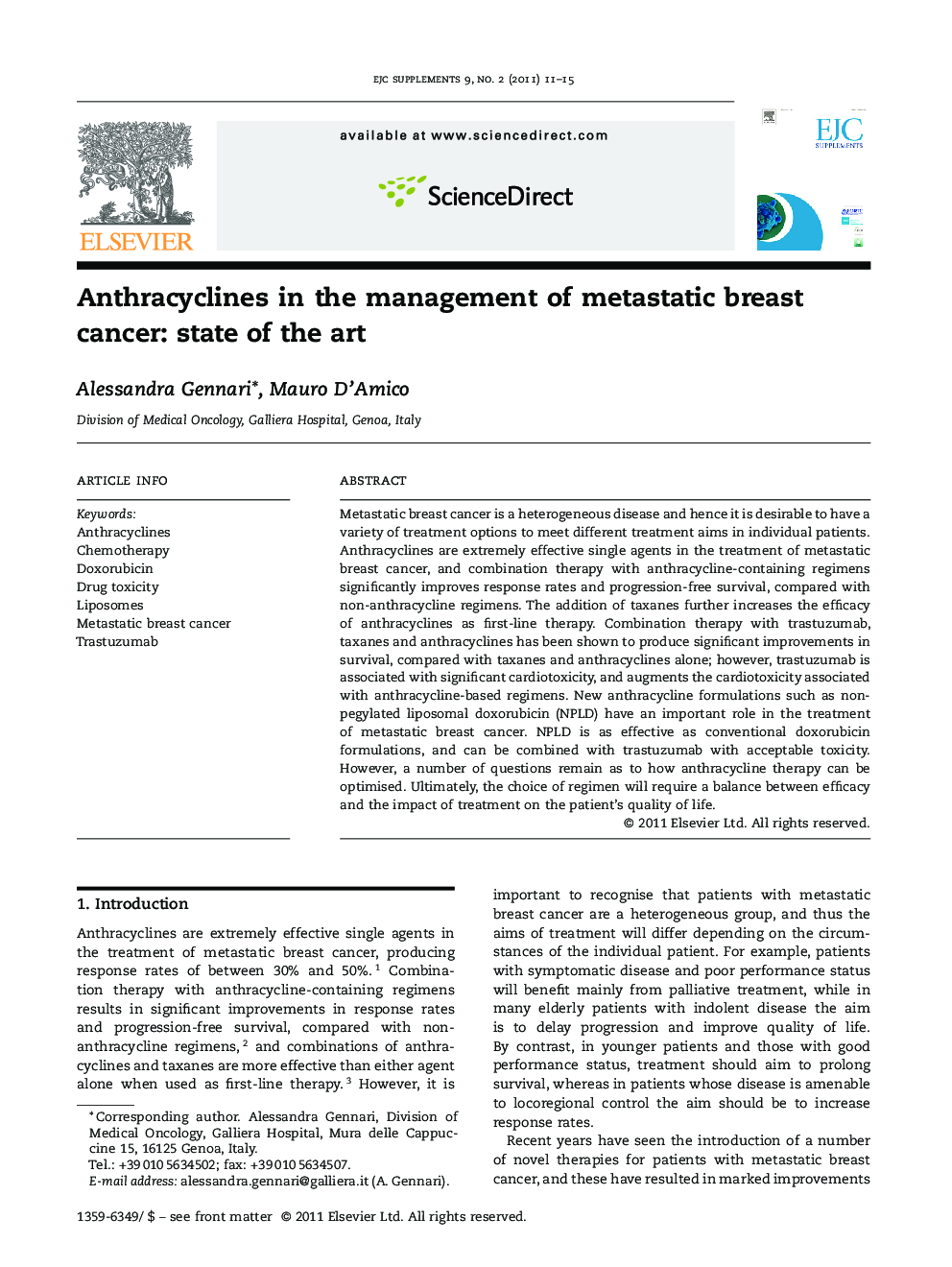| Article ID | Journal | Published Year | Pages | File Type |
|---|---|---|---|---|
| 2127882 | European Journal of Cancer Supplements | 2011 | 5 Pages |
Metastatic breast cancer is a heterogeneous disease and hence it is desirable to have a variety of treatment options to meet different treatment aims in individual patients. Anthracyclines are extremely effective single agents in the treatment of metastatic breast cancer, and combination therapy with anthracycline-containing regimens significantly improves response rates and progression-free survival, compared with non-anthracycline regimens. The addition of taxanes further increases the efficacy of anthracyclines as first-line therapy. Combination therapy with trastuzumab, taxanes and anthracyclines has been shown to produce significant improvements in survival, compared with taxanes and anthracyclines alone; however, trastuzumab is associated with significant cardiotoxicity, and augments the cardiotoxicity associated with anthracycline-based regimens. New anthracycline formulations such as non-pegylated liposomal doxorubicin (NPLD) have an important role in the treatment of metastatic breast cancer. NPLD is as effective as conventional doxorubicin formulations, and can be combined with trastuzumab with acceptable toxicity. However, a number of questions remain as to how anthracycline therapy can be optimised. Ultimately, the choice of regimen will require a balance between efficacy and the impact of treatment on the patient's quality of life.
